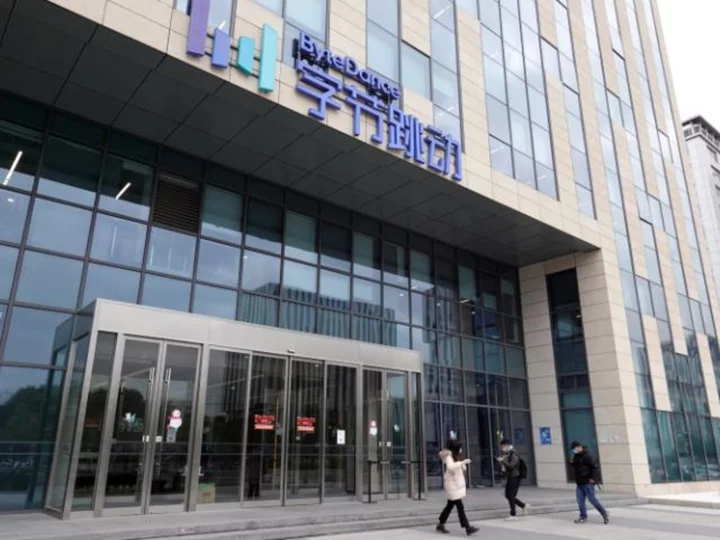An ex-ByteDance employee claimed he was wrongfully terminated after raising concerns about what he believed were illegal practices by the company, such as allegedly stealing content from its competitors Snapchat and Instagram.
Yintao "Roger" Yu, who filed a lawsuit in Superior Court in San Francisco earlier this month, worked at ByteDance, TikTok's parent company, from August 2017 to November 2018, as a head of engineering for US operations.
And in a new complaint filed Friday, Yu additionally claimed ByteDance engaged in a "culture of lawlessness" and was a "propaganda" arm of China, according to the New York Times.
"The Committee maintained supreme access to all the company data, even data stored in the United States," the complaint obtained by the New York Times said.
The Committee refers to a special unit of Chinese Communist Party members that were in ByteDance's offices in Beijing, the Times said.
Yu claimed that shortly after starting his job, he realized ByteDance had been embroiled in a "worldwide scheme" to steal from the app's competitors such as Instagram and Snapchat. Painting a picture of the company's early days in 2018, he claimed ByteDance would take videos from its competitors and use them to populate its own video services.
The former employee alleged in the complaint he was "troubled by ByteDance's efforts to skirt legal and ethical lines."
The allegations come as the wildly popular TikTok app is at risk of being banned by US lawmakers for national security concerns. Montana lawmakers voted to completely ban TikTok in the state a few weeks after CEO Shou Zi Chew spent hours testifying before Congress. And the Biden administration has threatened TikTok with a nationwide ban unless its Chinese owners sell their stakes in the company, spelling out an increasingly tense relationship between the two countries.
However, security experts say there is still no public evidence the Chinese government has actually spied on people through TikTok, which doesn't operate in China.
"It's not that we know TikTok has done something, it's that distrust of China and awareness of Chinese espionage has increased," said James Lewis, an information security expert at the Center for Strategic and International Studies.
Yu says he raised concerns about intellectual property with Wenjia Zhu, who was then the senior vice president of engineering.
"When informed of Mr. Yu's concerns with the program, Mr. Zhu was dismissive of them, and the intellectual property infringement continued unabated," the complaint said.
Charles Jung, attorney for Yu, said the former employee is the most senior executive to come forward publicly.
"Tech companies in his view should be run in an ethical and responsible way," Jung said in a statement to CNN. "My client is concerned about protecting American user data, the ethical operation of the app, and the wellbeing of ByteDance's employees."
In a statement to CNN, a ByteDance spokesperson said the company is "committed to respecting the intellectual property of other companies, and we acquire data in accordance with industry practices and our global policy."
Yu is seeking compensatory damages such as lost earnings, injunctive relief and liquidated and punitive damages.
A ByteDance spokesperson said that Yu worked on an app called Flipagram while at the company, which was discontinued due to business reasons.
"We plan to vigorously oppose what we believe are baseless claims and allegations in this complaint," the spokesperson said. "Mr. Yu worked for ByteDance Inc. for less than a year and his employment ended in July 2018," which Yu disputed in his complaint.

